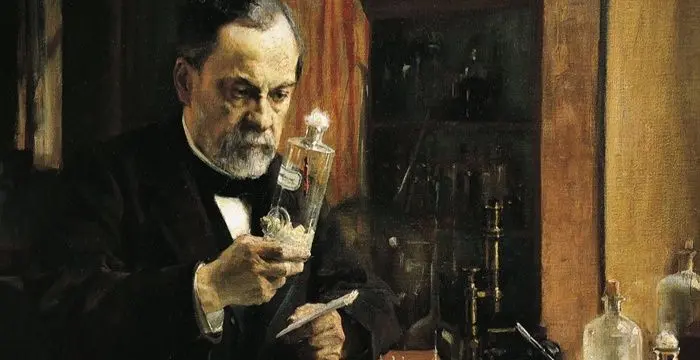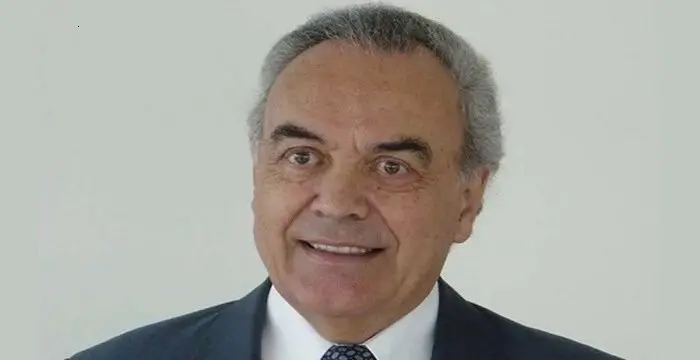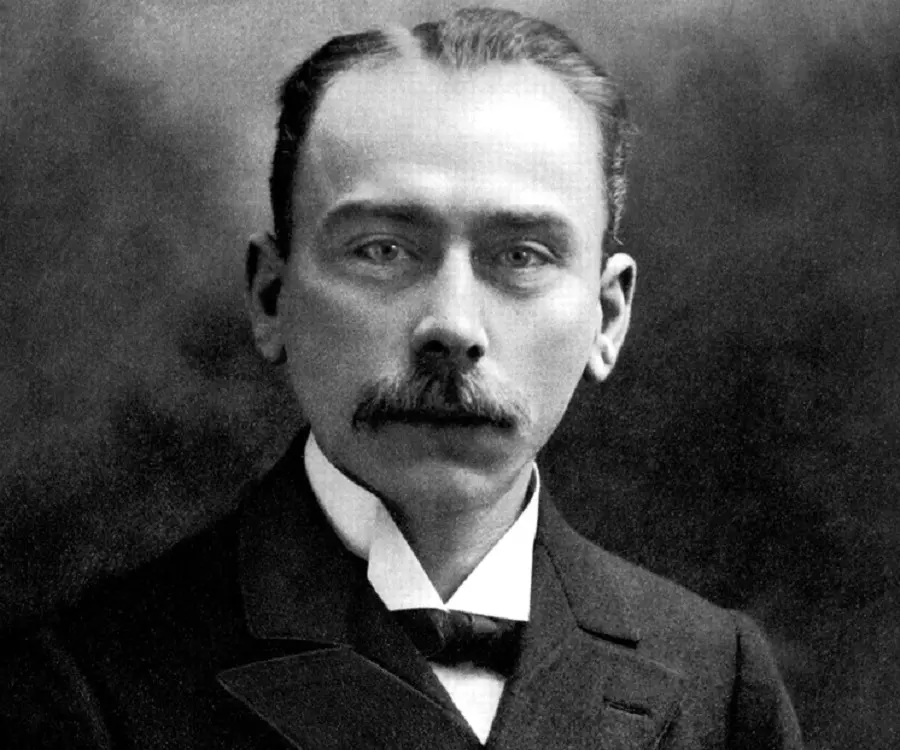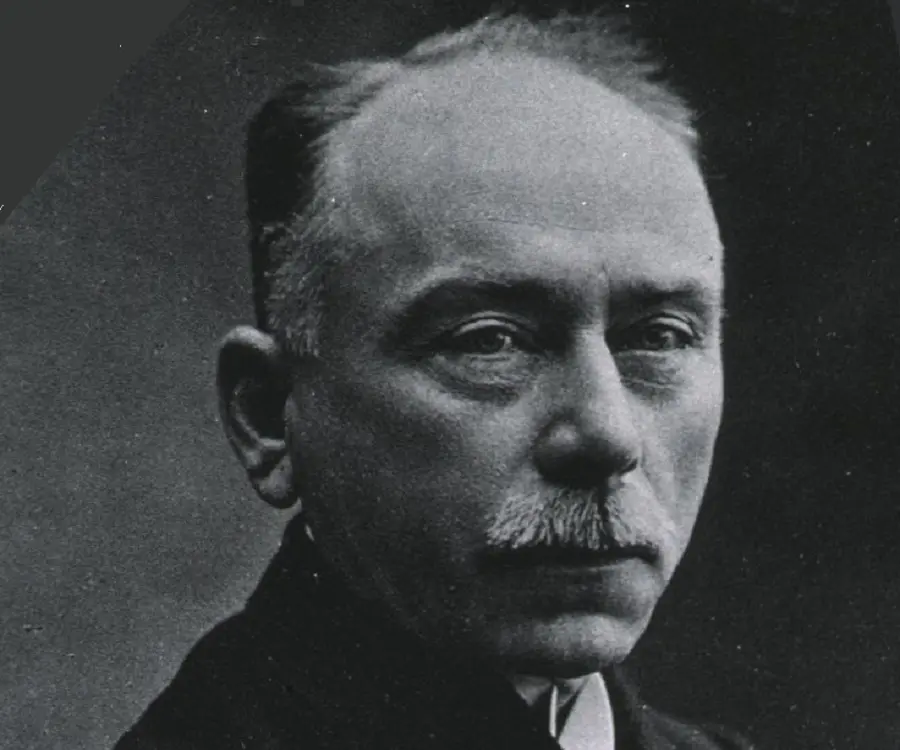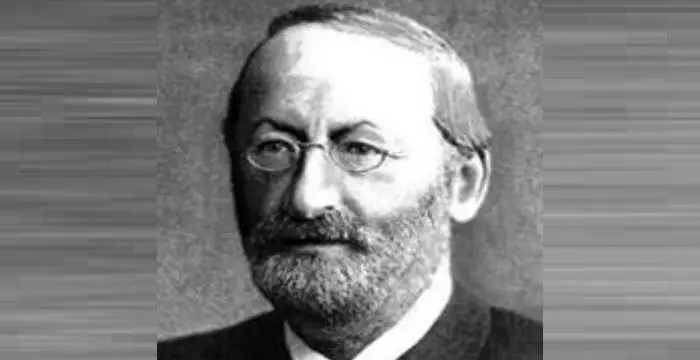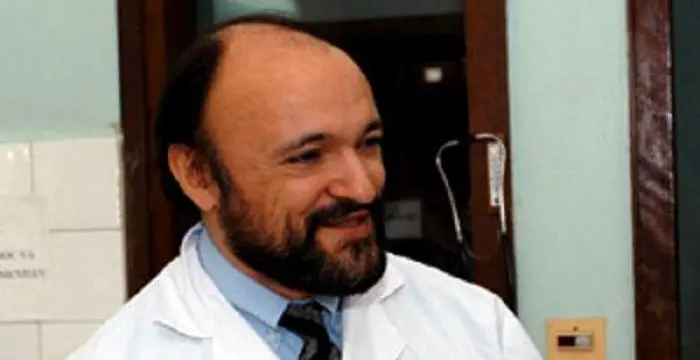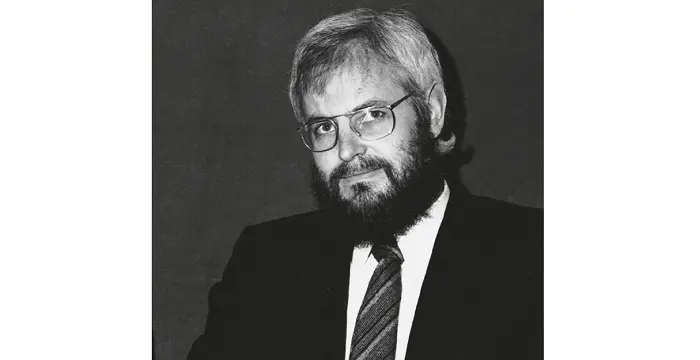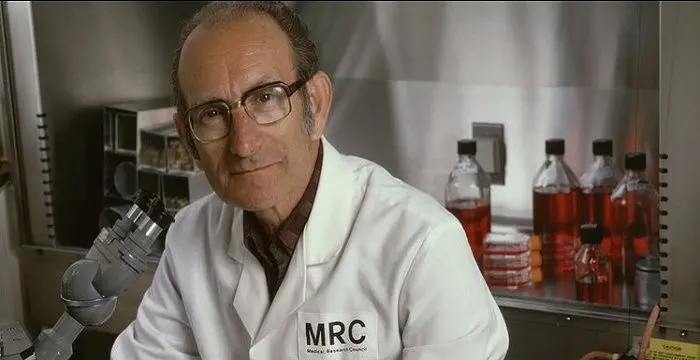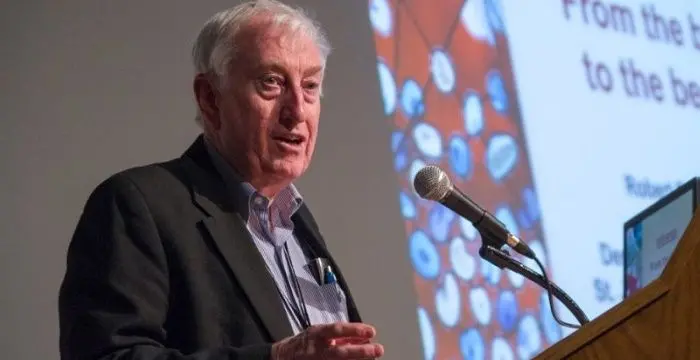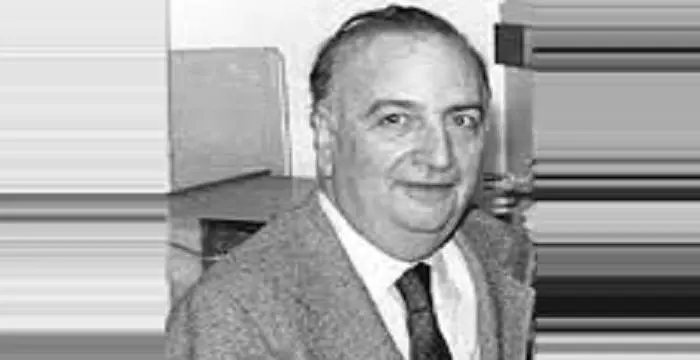Jules Bordet - Immunologists, Family and Facts
Jules Bordet's Personal Details
Jules Bordet was a Belgian microbiologist and immunologist who won the 1919 Nobel Prize in Medicine "for his discoveries relating to immunity"
| Information | Detail |
|---|---|
| Birthday | June 13, 1870 |
| Died on | April 6, 1961 |
| Nationality | Belgian |
| Famous | Scientists, Immunologists, Medical Scientists, Microbiologists, Immunologists, Microbiologists |
| Universities |
|
| Birth Place | Soignies |
| Gender | Male |
| Sun Sign | Gemini |
| Born in | Soignies |
| Famous as | Microbiologist and Immunologist |
| Died at Age | 90 |
// Famous Microbiologists
Louis Pasteur
Louis Pasteur was a French chemist and microbiologist who developed the first vaccines for rabies and anthrax. This biography of Louis Pasteur provides detailed information about his childhood, life, achievements, works & timeline.
Werner Arber
Werner Arber is a Swiss microbiologist and a geneticist who was awarded the Nobel Prize in Physiology or Medicine in 1978. This biography provides detailed information about his childhood, life, career, research, achievements and timeline.
Jules Bordet's photo
Who is Jules Bordet?
Jules Bordet was a Belgian microbiologist and immunologist who won the 1919 Nobel Prize in Medicine "for his discoveries relating to immunity". Bordet began his career at the Pasteur Institute in Paris. During his time at the Pasteur Institute, he conducted research on the destruction of bacteria and red corpuscles in blood serum. His initial studies showed that antimicrobic sera contained two active substances, one that existed before immunization (known as alexine) and the other a specific antibody created by vaccination. After his stint in Paris, he moved to Brussels where he established the Pasteur Institute. In 1898, he discovered haemolytic sera and found that red blood cells from one animal species that are injected into another species are destroyed through a process (hemolysis) analogous to bacteriolysis. In 1906, Bordet made the revolutionary discovery of the bacterial genus Bordetella pertussis which was responsible for whooping cough. Following his discovery, Bordet took up the chair of the Professor of Bacteriology at the Université Libre de Bruxelles in 1907. Other than bacteriology, Bordet carried out extensive work on immunology as well. Over the years, he was awarded with several honors and awards and became a member of numerous reputed and highly-esteemed academies and societies.
Childhood & Early Life
Jules Bordet was born as Jules Jean Baptiste Vincent Bordet on June 13, 1870 at Soignies, Belgium. Not much is known about his childhood, his parents and family.
Upon completing his formal studies, Bordet enrolled at the Free University of Brussels from where he received his doctorate degree in medicine in 1892.
Career
Post completing his doctoral studies, in 1894, Bordet began his career at the Pasteur Institute in Paris. He worked at the laboratory of Elie Metchnikoff, who had then discovered phagocytosis of bacteria by white blood cells.
At the Pasteur Institute, Paris, Bordet conducted research on the destruction of bacteria and red corpuscles in blood serum. This led to the foundation of serology – a study of immune reactions in body fluids.
Bordet made a revolutionary discovery in 1895. He found that the rupture of the bacterial cell walls was caused by two components which were present in blood serum – first was a heat-stable antibody present in animals immune to bacteria and the second was a heat-sensitive substance found in all animals.
In 1898, he discovered that RBC injected from one animal species into the other gets damaged through hemolysis which is analogous to bacteriolysis.
In 1900, Bordet left Paris to set up Pasteur Institute in Brussels. It was in Brussels that Bordet reached the magnum opus of his career. Along with his brother-in-law, Octave Gengou, he continued his immunity research which led to the development of complement-fixation test that detected the presence of infectious agents in the blood. These infectious agents are the cause of major diseases like typhoid, tuberculosis, syphilis. Even today, the technique is used for serologic testing for many other diseases.
In 1906, along with his research partner Gengou, Bordet isolated currently known bacterium Bordetella pertussis, in pure culture. This led him to discover the same as the main cause for whooping cough. The bacterial genus Bordetella is named after him.
A year after Bordet discovered the bacterium Bordetella pertussis for whooping cough, he was appointed as the Professor of Bacteriology at the Université Libre de Bruxelles in 1907.
Other than his work on bacteriology, Bordet was a great exponent of immunology as well. In 1939, he authored the book, Traité de l'Immunité dans les Maladies Infectieuses (Treatise on immunity in infectious diseases). Additionally, he wrote several medical publications as well.
Major Works
Bordet’s major work came when he shifted to Brussels from Paris and set up Pasteur Institute in Brussels. He set the foundation for the complement-fixation testing methods that enabled the development of the serological tests for syphilis. He isolated Bordetella pertussis in pure culture and determined that it was the main cause behind whooping cough.
Awards & Achievements
Bordet’s research work and discovery won international acclaim and fame when he was conferred with the most prestigious and highly esteemed award, The Nobel Prize in Physiology or Medicine 1919. The award honoured his research work and discoveries relating to immunity.
Bordet was a member of numerous academies and societies, some of which include The Belgium Royal Academy, The Royal Society London, The Royal Society of Edinburgh, the Academy of Medicine (Paris) and the National Academy of Sciences (U.S.A.).
Bordet served as the permanent member of the Administrative Council of Brussels University. He served as the President of the First International Congress of Microbiology held in Paris, 1930.
Personal Life & Legacy
Jules Bordet married Marthe Levoz in 1899. The couple was blessed with two daughters and a son, Paul who followed his footsteps and later took up the chair as the Chief of Pasteur Institute, Brussels. Paul, like his father, also served as the Professor of Bacteriology.
Bordet breathed his last on April 6, 1961. His ashes were interred at the Ixelles Cemetery in Brussels.
Trivia
Interestingly, during the selection process of 1919 Nobel Prize for Physiology or Medicine, there wasn’t a single nomination who met the criteria outlined by Alfred Nobel. As such, the Nobel Prize was reserved for the next year in accordance with the statutes. Following year in 1920, Bordet received his Nobel Prize for 1919.
// Famous Microbiologists
Ferdinand Cohn
Ferdinand Cohn was a German biologist who is considered as the father of bacteriology and microbiology. Check out this biography to know about his childhood, life, achievements, works & timeline.
Louis Pasteur
Louis Pasteur was a French chemist and microbiologist who developed the first vaccines for rabies and anthrax. This biography of Louis Pasteur provides detailed information about his childhood, life, achievements, works & timeline.
Carlo Urbani
Italian epidemiologist Carlo Urbani was the first person who identified SARS as a highly contagious disease. Find out more about his life in this biography.
Jules Bordet's awards
| Year | Name | Award |
|---|---|---|
Other | ||
| 0 | Nobel Prize in Physiology or Medicine | |
Jules Bordet biography timelines
- // 13th Jun 1870Jules Bordet was born as Jules Jean Baptiste Vincent Bordet on June 13, 1870 at Soignies, Belgium. Not much is known about his childhood, his parents and family.
- // 1892Upon completing his formal studies, Bordet enrolled at the Free University of Brussels from where he received his doctorate degree in medicine in 1892.
- // 1894Post completing his doctoral studies, in 1894, Bordet began his career at the Pasteur Institute in Paris. He worked at the laboratory of Elie Metchnikoff, who had then discovered phagocytosis of bacteria by white blood cells.
- // 1895Bordet made a revolutionary discovery in 1895. He found that the rupture of the bacterial cell walls was caused by two components which were present in blood serum – first was a heat-stable antibody present in animals immune to bacteria and the second was a heat-sensitive substance found in all animals.
- // 1898In 1898, he discovered that RBC injected from one animal species into the other gets damaged through hemolysis which is analogous to bacteriolysis.
- // 1899Jules Bordet married Marthe Levoz in 1899. The couple was blessed with two daughters and a son, Paul who followed his footsteps and later took up the chair as the Chief of Pasteur Institute, Brussels. Paul, like his father, also served as the Professor of Bacteriology.
- // 1900In 1900, Bordet left Paris to set up Pasteur Institute in Brussels. It was in Brussels that Bordet reached the magnum opus of his career. Along with his brother-in-law, Octave Gengou, he continued his immunity research which led to the development of complement-fixation test that detected the presence of infectious agents in the blood. These infectious agents are the cause of major diseases like typhoid, tuberculosis, syphilis. Even today, the technique is used for serologic testing for many other diseases.
- // 1906In 1906, along with his research partner Gengou, Bordet isolated currently known bacterium Bordetella pertussis, in pure culture. This led him to discover the same as the main cause for whooping cough. The bacterial genus Bordetella is named after him.
- // 1907A year after Bordet discovered the bacterium Bordetella pertussis for whooping cough, he was appointed as the Professor of Bacteriology at the Université Libre de Bruxelles in 1907.
- // 1919Bordet’s research work and discovery won international acclaim and fame when he was conferred with the most prestigious and highly esteemed award, The Nobel Prize in Physiology or Medicine 1919. The award honoured his research work and discoveries relating to immunity.
- // 1930Bordet served as the permanent member of the Administrative Council of Brussels University. He served as the President of the First International Congress of Microbiology held in Paris, 1930.
- // 1939Other than his work on bacteriology, Bordet was a great exponent of immunology as well. In 1939, he authored the book, Traité de l'Immunité dans les Maladies Infectieuses (Treatise on immunity in infectious diseases). Additionally, he wrote several medical publications as well.
- // 6th Apr 1961Bordet breathed his last on April 6, 1961. His ashes were interred at the Ixelles Cemetery in Brussels.
// Famous Immunologists
Georges J. F. Kohler
Georges J. F. Kohler was a German immunologist who received the Nobel Prize in Physiology or Medicine in 1984. Check this biography to get details about his life, profile and timeline.
Cesar Milstein
Cesar Milstein was an Argentinian biochemist who received the Nobel Prize for his discovery of monoclonal antibody. Explore this biography to get details about his life, career and scientific discoveries.
Susumu Tonegawa
Susumu Tonegawa is a Japanese molecular biologist who was awarded the Nobel Prize for Physiology or Medicine in 1987. This biography of Susumu Tonegawa provides detailed information about his childhood, life, achievements, works & timeline.
Harold E. Varmus
Harold E. Varmus is an American scientist who won a share of the 1989 Nobel Prize in Physiology or Medicine. This biography of Harold E. Varmus provides detailed information about his childhood, life, achievements, works & timeline.
Peter C. Doherty
Peter C Doherty is a renowned Australian scientist circle, who was received the Nobel Prize in Physiology for the discovery of how immune system recognizes virus-infected cells. Read this biography to know in details about his childhood, life, career
Baruj Benacerraf
Baruj Benacerraf was a Venezuelan-born American immunologist who was one of the co-recipients of the 1980 Nobel Prize in Physiology or Medicine. Check out this biography to know about his childhood, life, achievements, works & timeline.
Jules Bordet's FAQ
What is Jules Bordet birthday?
Jules Bordet was born at 1870-06-13
When was Jules Bordet died?
Jules Bordet was died at 1961-04-06
Where was Jules Bordet died?
Jules Bordet was died in Brussels
Which age was Jules Bordet died?
Jules Bordet was died at age 90
Where is Jules Bordet's birth place?
Jules Bordet was born in Soignies
What is Jules Bordet nationalities?
Jules Bordet's nationalities is Belgian
What was Jules Bordet universities?
Jules Bordet studied at Université libre de Bruxelles
What is Jules Bordet's sun sign?
Jules Bordet is Gemini
How famous is Jules Bordet?
Jules Bordet is famouse as Microbiologist and Immunologist
